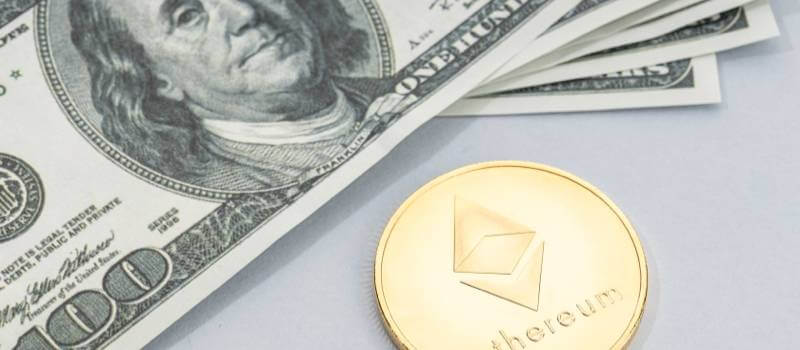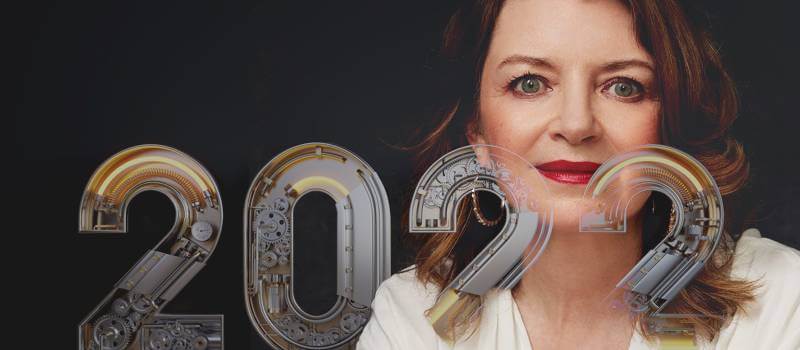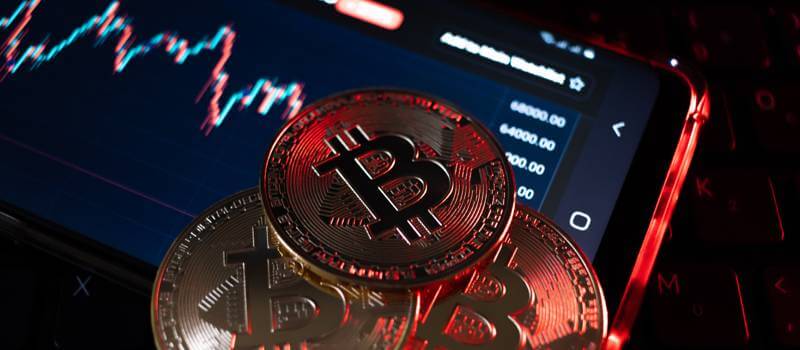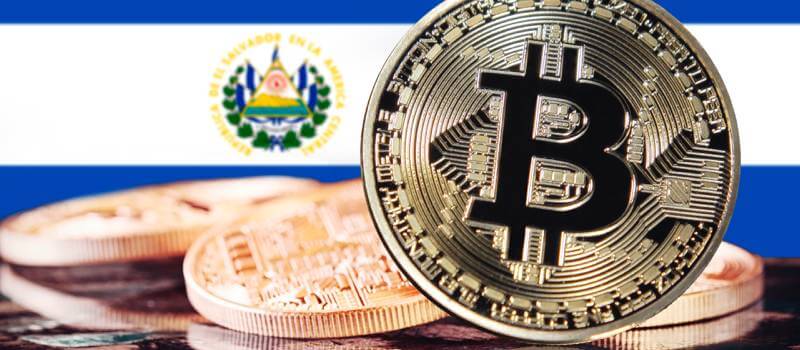In his recent New Year video labeled “8 Shocking Bitcoin Crypto Predictions for 2022,” famous crypto influencer and investor Lark Davis reaffirms that the SEC lawsuit against Ripple is an attack on crypto in the US. He strongly believes that Ripple’s win against SEC will become a net positive for crypto. Davis comprehensively spoke about what the crypto community could expect in the year 2022, wherein he made eight interesting predictions concerning various topics. One of them is about Ripple, and he told his followers that in his estimation it is Ripple who will emerge as the victor in the SEC-Ripple lawsuit. Reaffirming what Ripple CEO Brad Garlinghouse had remarked about Ripple’s fight against SEC being not for itself only but for the crypto as a whole, Davis suggested that we all (the crypto community) should be “rooting for Ripple to win” as Ripple’s win is a “net positive” for crypto. He went on to affirm his belief that the SEC has been acting like a “school yard bully” lately, and most of the regulators, but specifically the agency’s Chairman Gary Gensler, have taken severe stances regrading crypto, and this limits US investor’s participation in crypto within the country. He added, for instance, the US-based investors are not even allowed to take part in initial coin offerings (or ICOs).
Why could this be so important? Davis projects that if Ripple wins the lawsuit against SEC, it would set a precedent that would be enough to restrict SEC and keep it in place, whereas, on contrary, if the SEC wins, it would bring confidence to the regulators, who will then most likely continue to strike further lawsuits against other cryptos. Recently, upon SEC’s threat of filing a lawsuit against Coinbase, that company had to put on hold the launch of its highly anticipated lending platform. It is to be remembered that it had been all the way back in late December 2021 when the SEC had filed their lawsuit against Ripple. It alleged CEO Garlinghouse, Co-founder Chris Larsen, and the firm itself, sold $1.38 billion worth of XRPs as securities, while the company failed to register XRP as a security with any of the relevant regulators.

ETH/USD Slides Below $4038 Resistance
The Ethereum price chart shows ETH sitting at a crucial support level which could determine where the coin would head if it continued in its current falling pattern. ETH/USD Key Levels: Resistance levels are currently at $4400, $4500, and $4600, with Support levels at $3600, $3500, and $3400. As of last Wednesday, ETH/USD was following in the footsteps of the flagship cryptocurrency BTC, as Bitcoin was seen dropping towards the lower boundary of its own channel. Looking more closely, Ethereum failed to create a new high above its resistance level of $4128. Ethereum (ETH) may go lower from here, since by looking at the daily chart, its price is currently hovering below the 9-day and 21-day moving averages. The increasing selling pressure could potentially bring ETH/USD to test its recent low at about $3850, and it appears that we will not see upward momentum until the red-line of the 9-day moving average crosses above the green-line of the 21-day moving average. If that were to occur, the price of Ethereum could rebound and move consistently to the upside.
Investigating the latest daily charts, if buyers can manage to push the coin to the upside, Ethereum’s price could move towards the upper boundary of its channel, which would be the resistance levels of $4400, $4500, and $4600. It seems more likely that its failure to stay above the moving averages will continue to pressure Ethereum (ETH) to move to the downside. A downward swing may trigger a sell-off below the lower boundary of the channel – at $3600, $3500, and $3400. As the 14-day Relative Strength Index moves to cross below the 40-day level, it is likely for Ethereum to test the supports at $3600, $3500, and $3400. When comparing ETH with BTC, last Wednesday revealed a breakdown on the long channel after continuous selling pressure in the market led to the current downward trend. This pattern reveals that bears might have firm control of the market. It will take buyers to come in to push the market back above the 9-day and 21-day moving averages in order to reverse this current trend.

Genesis’ Noelle Acheson on crypto growth in 2022
Crypto saw astonishing institutional growth in 2021, but Genesis’ Noelle Acheson believes adoption is set to accelerate over the next year. While speaking to Joe Kernen during an interview on CNBC’s “Squawk Box,” Noelle Acheson, the head of Market Insights at Genesis Global Trading, stated that she fully expected that the next twelve months will see a continuation of institutional growth within the crypto space. When asked to predict what she thinks will happen in the crypto space next year – whether it be SEC finally approving a spot Bitcoin ETF, major regulatory actions from across the globe, or institutional adoption – she noted that no one can know for sure what will happen. However, she said that 2021 was very “interesting” and that the industry expects a continuation of institutional growth as seen over the past year. “We are seeing strong signs of that accelerating over the next year,” she said, adding that these could be direct investments into crypto or through investments into companies building the crypto market’s infrastructure.
Acheson stated that the crypto space currently has 65 unicorns, which are startup companies whose market valuation is above $1 billion. She noted that 2021 alone saw 40 crypto-focused companies hit unicorn status, with an average of three new firms hitting the billion-dollar valuation every month. Such astonishing growth can only lead to more interest in crypto and blockchain technology, and she said the growth is likely to accelerate interest even as more money flows into the industry. Acheson also talked about institutional interest and its visibility now that investment managers are choosing to diversify into crypto. The former managing director of research at Coindesk told CNBC that the past year saw more institutions add crypto to their portfolios. Even more interesting than that was that many of these institutions went for digital assets outside of the top two (Bitcoin and Ethereum).
Acheson noted that market maturity now offers investors room for choice, and this has increasingly seen investors go for risky, but potentially higher returns altcoins. These are tokens that represent new technological advancements in the crypto space, which would include decentralised finance (DeFi) and non-fungible tokens (NFTs), although she did not mention these specifically. The metaverse and Web 3.0 tokens are also gaining a lot of traction going into 2022. Finally, Acheson also talked about Bitcoin mining and China’s crackdown that saw an exodus of miners into other regions, many of them to the US. She says this was a big development but added that it might just have benefited Bitcoin miners in terms of access to financing.

Cryptos lower, US markets with post-Christmas bang
The crypto market was mostly in the red during the final days of the month, as the vast majority of top 10 cryptos were seen lower. US markets returned with a post-Christmas bang, with the SPX500 (+1.38%) achieving yet another record high. European stocks picked up where they left off before Christmas by finishing in the green, and oil ticked up more than three percent. Oil traders were increasingly optimistic about consumer demand for the fossil fuel as we enter 2022. As for the top cryptos: Bitcoin was down approximately 3%, trading below $50,000, as were Ethereum and XRP both down around 3%. Cardano registered losses of approximately 1%, but Terra was the biggest top ten loser, down by more than 10%. Polygon lost just over 8% of its value. The top gainers outside the top twenty crypto were Sushiswap, Icon and IOTA. AMM Sushiswap gained 10% in one day. Yet, ICON Network, a layer one blockchain from South Korea, is the top 100’s biggest winner. Its declared vision is to build an interoperable blockchain network bridging autonomous online communities and real-world enterprises.
For further detail: ICON Network focuses on delivering real-world utility by advancing hyperconnectivity through the promotion of frictionless value exchanges. By verifying transactions on its decentralized ledger, ICON can minimize the number of intermediaries and eradicate boundaries to cross-border interactions. In particular, the company focuses on the use cases of decentralized identity, blockchain payments, decentralized finance, digital certificate issuance, non-fungible tokens and several additional use cases such as e-government, elections, decentralized oracles and e-health. It gained 18% on just one day last week, reaching the 84th spot on CoinMarketCap. On the other end of the spectrum are Theta and Yearn Finance, which both dropped eleven percent, and Loopring and Curve DAO Token, each down about ten percent. Finally, Multi-Farm Capital is an experimental yield farming/profit sharing protocol developed and launched on the Ethereum blockchain. Transaction fees from trading are collected in a treasury which is then utilized to yield farm on various other blockchains. After migrating to a new contract, it’s up a mere 1,845%.

Rushing to Build a Bitcoin Payments Infrastructure. El Salvador’s Rollout – Mixed Results/Reviews
El Salvador had purchased 1,100 Bitcoins between September 6 and October 27, 2021 following the Bukele government’s decision to make Bitcoin legal tender in that country. The Finance Ministry had earmarked $205.3 million in the process: they used $150 million to establish a fund to back Bitcoin conversions at the country’s development bank (Banco de Desarrollo de la República de El Salvador), and then the government launched a digital wallet called Chivo (slang for “cool”). It also installed 200 Chivo ATMs and 50 branches to allow users to buy Bitcoin or convert it to cash, with the government absorbing commission fees. After they downloaded the Chivo app, Salvadorean users received a $30 stipend in Bitcoin, which was equivalent to nearly 8% of the country’s monthly minimum wage. Bitso, which is the largest crypto platform in Latin America, handles Chivo’s custody and exchange services. On September 7, Bitcoin became legal tender in the country and large chains in San Salvador started accepting payments in Bitcoin, including food franchises such as Starbucks, McDonald’s, and Pizza Hut; supermarkets, and electronics stores.
Peter McCormack, host of the podcast What Bitcoin Did, recently stated, “For me, [Bitcoin] is a store of value. But when I was recently in El Salvador, I was using Bitcoin I have on my phone… to buy coffee, to buy breakfast, to buy dinner. So, I was using it as a medium of exchange.” However, glitches marred Bitcoin’s September 7 rollout, and it was the case that most Salvadoreans did not have a seamless experience using Bitcoin as a payment instrument. Protesters marched on the streets because of this, and on that day, the crypto asset’s price fell nearly ten percent. It appears that the Chivo app’s performance depends on good connectivity. One citizen reported, about using the app, that “the annoying thing is that there isn’t always coverage, but, when [the app] works well, it works well.” Another, working as a barista, said that customers walk out of his coffee shop when the Chivo app is down, and that merchants’ limited adoption of Bitcoin creates uncertainty for customers. Another user reported, “I felt very insecure after I funded my account in the app, [as] there is no guarantee of a clean transaction.” He said he was having trouble paying Bitcoin to several retailers who eventually reverted or cancelled the transactions. On September 7th, the Chivo app was only available on Huawei phones, and the app temporarily went offline due to an overload in the servers’ capacity.
Several users found nefarious actors had already depleted their Chivo. One prominent attorney stated, “If someone has opened a Chivo account in your name, that wallet might be used to transfer funds from drug dealing, illegal weapon sales, human trafficking and corruption.” Cases of hacking are on the rise and the Chivo app has asked users to exercise caution to prevent fraud. The Tracoda Watch Group has tracked at least 2,000 cases of stolen identity, and El Salvador risks becoming a haven for money laundering and tax evasion, according to the World Bank and the International Monetary Fund. Interestingly, the World Bank declined to help with the Bitcoin rollout, citing environmental and transparency issues. “There is a lot of risk associated with Bitcoin and that risk will be borne by the taxpayers,” said Steve Hanke, an economics professor at Johns Hopkins University. El Salvador will also have to deal with systemic Bitcoin problems, such as transaction capacity limits. Bitcoin is “a network that isn’t stable, doesn’t have accountable actors, and doesn’t have track record of providing the kind of price stability and liquidity that a currency is supposed to provide,” said Rohan Grey from the Digital Currency Global Initiative.
Esteban de la Peña Padilla, founding partner at IBEX Mercado, said El Salvador was “as ready [for the Bitcoin rollout] as Latin Americans can be for this.” Meantime, Brock Pierce, crypto evangelist and tech investor, stated, “No one had any expectation that this would be completely smooth.” Many Salvadoreans and financial analysts are worried about the impact of Bitcoin’s price volatility on El Salvador’s inflation dynamics. In a poll by Universidad Centroamericana, fifty-four percent of respondents said that Bitcoin would accelerate price increases for essential goods. Making Bitcoin legal tender “will be equivalent to an increase in the country’s monetary supply, which will temporarily boost El Salvador’s economic activity, but will also pressure inflation higher and with that, interest rates will rise,” wrote Gabriela Siller, Head of Economic Analysis at Banco Base in Mexico. It also seems that many people are afraid because of the lack of understandable information available to citizens about what drives Bitcoin price movements.
“The population continues to reject the use of Bitcoin as legal tender… the poor downloaded the app only to use the 30 dollars to buy goods and services, not to enter the world of Bitcoin. The dollar will always be considered legal tender by households and Salvadoran microenterprises,” said Óscar Cabrera, former president of the Central Reserve Bank. However, some Chivo users took to day trading, speculating on Bitcoin’s price swings. The Chivo wallet had to restrict trading to curb speculation. “It’s become really hard to trade, convert, and even guarantee your money in dollars,” said Alexander Sermeño, a day trader and consultant. Many low-income Salvadorans converted their Bitcoin funds into cash as soon as they could, and between May and June 2021, when the Salvadorian Assembly made Bitcoin legal tender, the share of consumers holding savings in cash spiked from 36.7% to 50.4%, per a poll by the Foundation for Economic and Social Development. On September 15, anti-government marchers in San Salvador protesting against Bitcoin and the Bukele administration vandalized and set fire to a Chivo ATM.
The post <h5>Digital Asset Insights #48</h5> <h3>Famous Crypto Influencer Asks Crypto Community to Root for Ripple, as Ripple’s Win Against SEC Is a Net Positive for The Market</h3> appeared first on JP Fund Services.



































